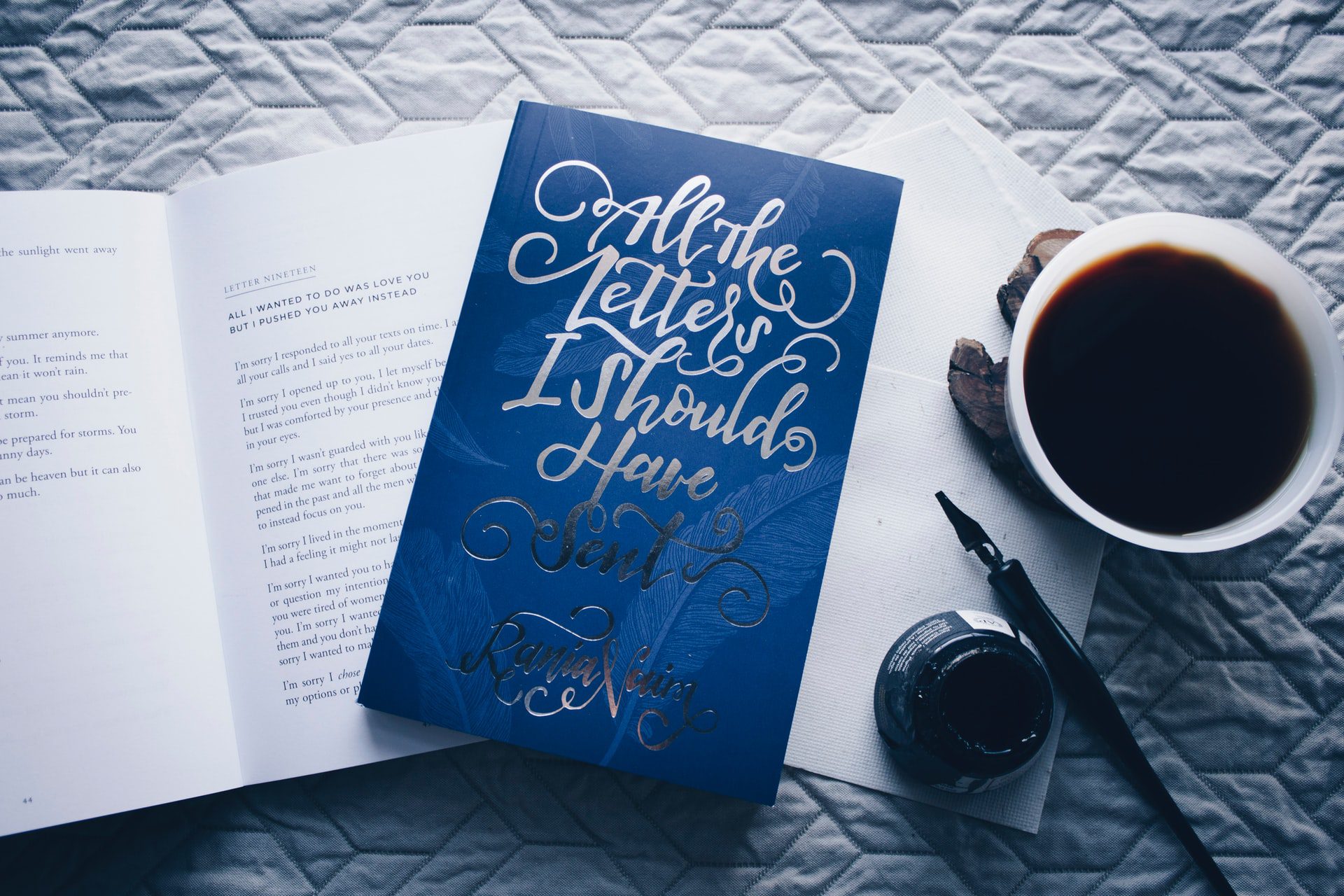
How to Pitch Your Novel to Agents Like a Pro

You’ve finished your manuscript, and you’re ready to pitch your novel to an agent. But how do you ensure your query letter will stand out from the rest?
Traditional publishing is a competitive field, and agents receive hundreds of pitches. In this post, we’ll walk you step-by-step through the process of querying agents to give your novel the best chance possible at standing out from the crowd.
When should you approach an agent?
If you’re a fiction writer, the best time to approach an agent to pitch your novel is when you have a finished manuscript. This means that all revisions are complete, that any edits or suggestions from beta readers have been added, and you’ve done a final proofread.
Fiction writers don’t usually need to submit the entire manuscript to the agent at the beginning of the process, but you’ll need to choose a couple of chapters that are the best representation of your writing. You’ll also need your manuscript ready to go as soon as an agent sends you a full request, which means it has to be in a submission-ready state.
Non-fiction writers, on the other hand, do not need to wait until their book is complete. Instead, non-fiction agents and publishers find writers through book proposals.
A book proposal is designed to sell your idea and give agents and publishers a sense of who you are as a writer. We have a whole course dedicated to non-fiction book proposals on the Academy page, written for us by a commissioning editor at Penguin Random House. It will tell you everything you need to know about getting your non-fiction work in front of publishers.
What are agents looking for?
Agents are looking for books that they can sell to publishers. They need a book with a marketable premise, an authentic author voice, from a writer with excellent storytelling skills.
A good story idea isn’t enough. Agents also want to sign writers who show competency in their craft. They want to feel confident that you’re a writer with a fresh voice or story idea that will keep readers engaged from beginning to end.
Author maturity is also a good selling point. That doesn’t mean you have to be of a certain age or be at a certain point in your career. It does mean that you need to show professionalism and emotional maturity so that an agent knows you won’t need too much coddling or hand-holding. Agents get lots of queries, and they’re often short on time. They want someone who will make their lives easier.

Do your research and be specific
Researching agents is perhaps the most important thing you can do when starting the query process. You’ll want to know as much about them as possible and really understand what they’re looking for before you pitch your novel.
This research isn’t just for their sake, but yours as well. Agents have unique interests and tastes, and often represent a specific type of author. You’ll be wasting your time if you don’t put some effort into making sure an agent is the right fit for you.
You should always check an agent’s specific submission guidelines as a starting point. You can also try a website like QueryTracker or a database like the Writers’ and Artists Yearbook to create a shortlist of agents you think might be interested in your work.
If you’re submitting to an agency, make sure you’re submitting to the right representing agent, and always refer to them by name. If you can, check out their social media. What have they published in the past? What kind of authors do they represent? For example, if you are a YA romance writer and an agent’s bio says they publish romance novels, you might want to consider if they’re the right fit for you if they’ve only ever represented adult romance in the past.
Nothing will land your manuscript on the discard pile faster than not doing due diligence on your agents. You should never send unsolicited pitches to agents who are closed to queries. And you should never send pitches to agents who don’t work in your genre or target market.
If you want to learn more about how to vet an agent, we’ve got an entire post dedicated to just that topic!
What should you include in your query?
While each agent will have specific requirements that they need you to include or omit from your query, most agents will have a similar list of what they expect to see in your pitch letter.
It’s always a good idea to include a great hook. Keep it under 20 words, and make sure it’s short, compelling, and shows your novel’s unique selling point.
You’ll also want to include a synopsis of no more than 200 words. Never write a lengthy summary unless it’s a specific requirement of the particular agent. You want to pitch the heart of your story and what makes it different from other books in its genre. If you have plans for a series, make sure you can pitch your novel as a standalone, but show that it has series potential.
An engaging author bio is also an essential part of any query letter. You want to highlight things that make you special. Agents don’t just want to sell your book; they also want to represent you, so your bio needs to reflect why you’re someone that agent should take a chance on.
Let the agent know why you chose to pitch your novel to them specifically. If you’ve done your research, you should be able to tell them why you think you’re a good fit. Let them know how your book will be suitable for the landscape of books they already represent and how it is unique. You’ll also want to include two or three comparison (comp) titles to show that you understand the market.
Writing a killer plot summary
Like your query letter, every good plot summary should include a hook. A good hook will keep agents reading, so make sure it’s compelling and represents exactly what makes your story unique.
It’s easy for writers to fall into the trap of over-describing their stories, but you want to avoid this at all costs. Keep your synopsis short and to the point — under 200 words is usually about right unless the agent requests explicitly longer or shorter.
Your synopsis should set the scene. It should give a sense of who your characters are, their goals, and a good overview of your narrative arc and story’s central conflict. You don’t want to include every plot detail, but try to pepper your plot summary with select elements to give it a bit more zing.
While you want to give a potential agent a full story overview, you want to keep them interested as well, so don’t give away the ending too easily. The best way to do this is to set up the final act in your synopsis in a way that hints at a resolution, rather than explicitly writing out how it ends. You want to give a clear overview of your story while still dangling a carrot to entice an agent into a partial or full manuscript request.

Pitching your novel: do’s and don’ts
Do: tailor your query to the agent
Research is absolutely crucial when writing a query letter. You want to know as much about your agent as possible when you pitch your novel to them to make sure you’re the right fit for each other. Always address them by name, and make sure your pitch fits firmly within their wheelhouse.
Don’t: use a letter template
If you’re sending out a lot of query letters, it can be tempting to have a query template that you use to send to multiple agents. It might save time, but it won’t give your manuscript the best chance at success.
Don’t be lazy when you pitch your novel; take time to tailor each query letter to maximise your chances of finding representation.
Do: proofread your letter
I know it seems obvious, but nothing will do you a greater disservice than sending off a letter where you’ve left in typos, misspelt an agent’s name, or addressed it to the wrong agent entirely. Always read and then re-read any submissions.
Don’t: make sloppy mistakes
Sloppy mistakes often happen if you use a template letter or copy and paste information between multiple queries. It can be very easy to address queries to the wrong agents, or miss removing a piece of information that is relevant to one agent but might not be to another. If your query is sloppy, an agent will also assume your work is sloppy.
Do: understand your target market
Every writer has a niche and an ideal audience for their work. Agents also have their niches, and it’s important to understand your market so you know where and to whom you should concentrate your pitches. Being able to communicate a good understanding of your book market shows an agent that you understand how the industry works and will be easy to work with.
Don’t: use irrelevant comp titles
How you use your comp titles is a big part of showing you understand the market. Your comp titles should show that you know your audience, but it also represents where and to whom your book will sell. If you choose comp titles that you think will appeal to the agent but that don’t actually represent your book, you’re setting your pitch up for failure.
Do: sell your work
Above all, a query letter is a marketing document in which you are trying to sell your book to an agent. You want to be clear about why your book is good, what makes it unique, and why it deserves to be published. Don’t let false modesty get in the way of speaking confidently about your work.
Don’t: brag or share unnecessary writing credits
While being confident is vital when sending out query letters, it’s best to avoid overt bragging. The biggest issue is that bragging is often irrelevant to your novel, which should always remain the focus. If you’ve published work or won relevant awards for an agent to know about, then, by all means, share that information. But an agent pitch isn’t a resume that you need to pad to big yourself up. Ultimately, the part that needs to shine is your prose.
Summing up
Putting yourself out there and starting to query agents is an exciting, but daunting time in any writer’s life. Don’t be afraid of rejection!
The likelihood of landing the first agent you query is infinitesimally slim, so just keep trying. The key to getting an agent is persistence, patience, and most of all, knowing you’ve accomplished the ultimate achievement; you’ve written a book!



























